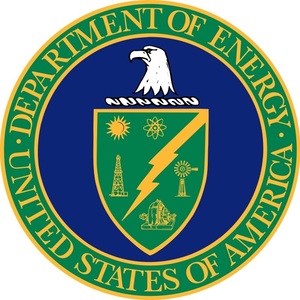DOE announces $97 million for bioenergy R&D

July 31, 2020
BY U.S. Department of Energy
Today, the U.S. Department of Energy announced more than $97 million in funding for 33 projects that will support high-impact technology research and development to accelerate the bioeconomy. These projects will improve the performance and lower the cost and risk of technologies that can be used to produce biofuels, biopower, and bioproducts from biomass and waste resources.
“Advancements made in bioenergy technologies will help expand America’s energy supply, grow our economy, and enhance our energy security,” said Under Secretary of Energy Mark W. Menezes. “These projects will ensure the United States’ leadership across all segments of the growing global bioeconomy, and allow us to provide U.S. consumers and businesses more homegrown energy choices for their fuels and products.”
The selected projects will address a variety of research and development areas, including:
•Scale-up of bench applications to reduce scale-up risks for biofuel and bioproduct processes;
Advertisement
•Waste to energy strategies including strategies for municipal solid waste, wet wastes, like food and manures, and municipal waste water treatment;
•Cost reduction of algal biofuels by improving carbon efficiency and by employing direct air capture technologies;
•Quantification of the economic and environmental benefits associated with growing energy crops, focusing on restoring water quality and soil health;
•Development and testing of low-emission, high-efficiency residential wood heaters;
•Innovative technologies to manage major forms of urban and suburban waste, with a focus on using plastic waste to make recycled products and using wastes to produce low-cost biopower; and
Advertisement
•Scalable CO2 electrocatalysis technologies.
More information about how DOE is working to develop industrially relevant, transformative, and revolutionary bioenergy technologies can be found on EERE’s Bioenergy Technologies Office website.
Related Stories
Delta Air Lines on May 7 announced its strong support for new bipartisan, bicameral legislation that will accelerate the growth of sustainable aviation fuel (SAF) in Michigan. The bill aims to create a SAF tax credit of up to $2 per gallon.
The U.S. EPA on May 14 delivered two RFS rulemakings to the White House OMB, beginning the interagency review process. One rule focuses on RFS RVOs and the other focuses on a partial waiver of the 2024 cellulosic RVO.
U.S. EPA Administrator Lee Zeldin on May 15 told members of the House Appropriations Committee that the agency is working as quickly as it can to take action on the backlog of RFS small refinery exemption (SRE) petitions.
The U.S. EPA on May 15 released data showing nearly 1.79 billion RINs were generated under the RFS in April, down from 2.09 million generated during the same month of last year. Total RIN generation for the first four months of 2025 was 7.12 billion.
The U.S. EPA on May 15 published data that shows eight new small refinery exemption (SRE) petitions have been filed under the RFS in the past month. According to the agency, 169 SRE petitions are now pending.
Upcoming Events










